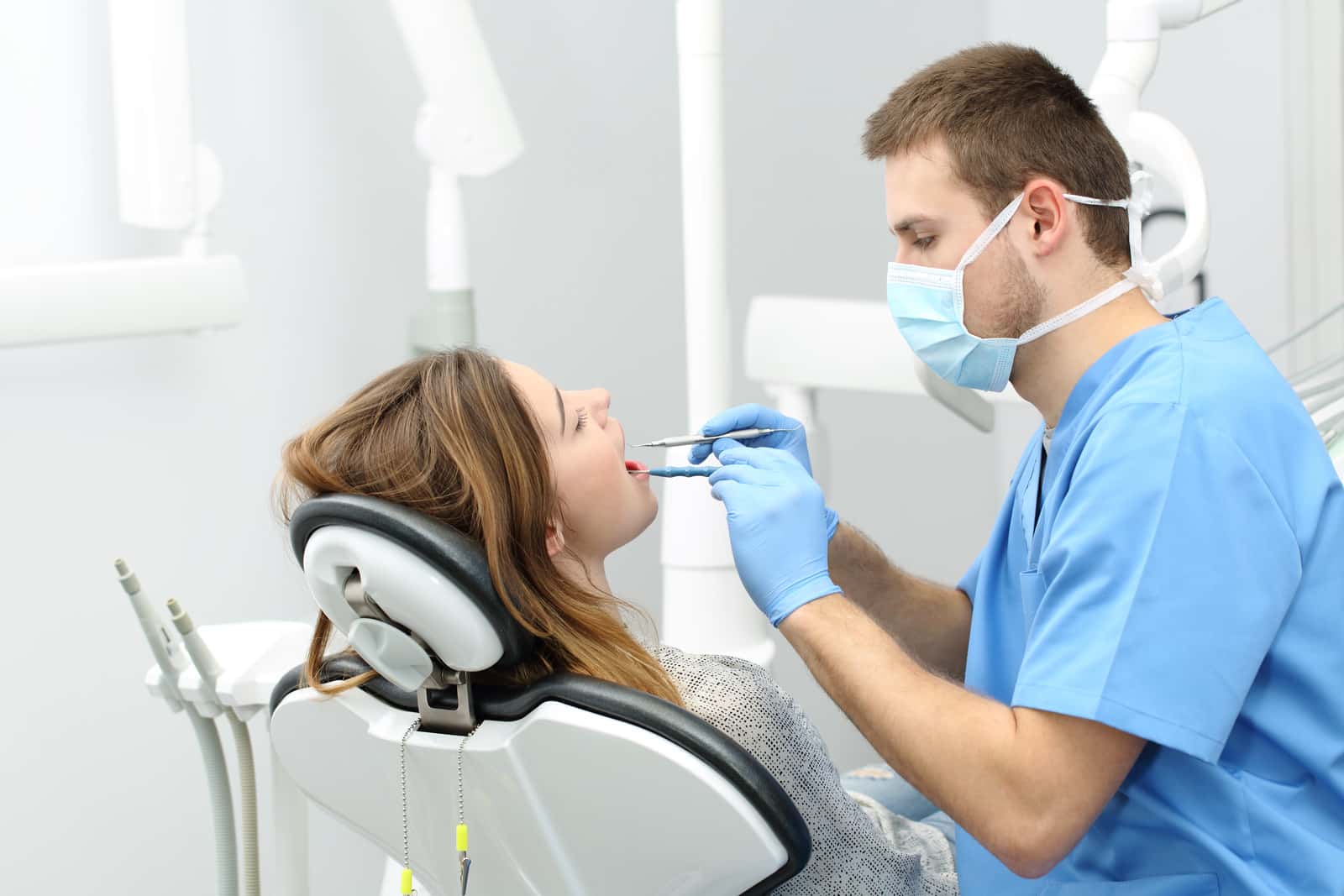Economical Dental Treatment Options from Leading Dentists Eugene
Economical Dental Treatment Options from Leading Dentists Eugene
Blog Article
An Overview to Common Dental Problems That Call for a Dental professional's Care
Understanding the series of oral conditions that require expert care is paramount for keeping optimal oral health and wellness. Toothaches, for instance, can be symptomatic of severe concerns such as cavities, fractured teeth, or abscesses, each calling for particular treatments like dental fillings or root canals. Gum tissue illness, from the beginning of gingivitis to more extreme periodontitis, emphasizes the importance of normal dental check-ups and cleansings. Influenced wisdom teeth and jaw conditions can introduce considerable discomfort and difficulties. Making certain prompt sees to the dental professional can mitigate these problems properly, however exactly what are the signs and therapies involved?
Toothaches
Toothaches are a typical oral condition that can vary from mild discomfort to extreme discomfort, often suggesting a hidden issue that calls for expert interest. This pain can come from a range of resources, consisting of dental cavities, fractured or fractured teeth, and oral abscesses. Each of these conditions presents significant threats if left neglected, potentially causing extra extreme problems.
Dental cavities, also referred to as caries, are triggered by the build-up of plaque that deteriorates tooth enamel, leading to holes or pits in the affected teeth. Fractured or fractured teeth, on the various other hand, may result from injury, grinding, or biting right into hard items. These structural problems can expose the sensitive internal layers of the tooth, triggering sharp pain and increasing the risk of infection. Abscesses hurt infections at the origin of a tooth or between the gum tissue and a tooth, typically resulting from serious decay or without treatment tooth cavities.
Efficient treatment of toothaches entails attending to the source. This might consist of fillings for cavities, crowns for split teeth, or origin canals and prescription antibiotics for abscesses. Very early treatment by a dental expert can protect against more wear and tear and relieve pain, guaranteeing ideal dental health.
Gum Tissue Disease

The main reason for gum condition is microbial plaque, a sticky, anemic film that constantly bases on teeth. Poor oral hygiene, cigarette smoking, hereditary tendency, and certain medical conditions, such as diabetes mellitus, can aggravate the danger of creating gum tissue disease. Routine oral check-ups are crucial for early discovery and administration of this condition.
Therapy for gum tissue illness ranges from professional dental cleaning and scaling to advanced procedures like origin planing and periodontal surgical procedure, depending upon the seriousness. Maintaining excellent dental hygiene practices, including cleaning twice daily, flossing, and utilizing a disinfectant mouthwash, can significantly decrease the threat of gum tissue condition and advertise much healthier gum tissues.
Dental Caries
Tooth cavities, likewise known as oral caries, are a common dental condition defined by the destruction of tooth enamel due to acid-producing bacteria in the mouth. These microorganisms flourish on sugars and starches from food and drinks, creating acids that slowly deteriorate the enamel, leading to tooth cavity formation.
Early-stage dental caries might disappoint signs, but as they advance, they can cause tooth pain, sensitivity to cool or hot, noticeable holes or pits in the teeth, and discoloration. If left unattended, cavities can permeate much deeper layers of the tooth, potentially causing severe pain, infection, and even missing teeth.
Stopping cavities includes a mix of good oral health techniques and dietary practices. Normal brushing with fluoride toothpaste, flossing, and regular dental exams are essential. Dentists may also recommend additional safety nets, such as fluoride therapies and oral sealers, to shield teeth from degeneration.
Therapy for dental caries like it depends on their severity. Minor cavities can be resolved with dental fillings, which recover the tooth's framework. A lot more sophisticated cases may call for crowns or also origin canal treatment if the decay has gotten to the tooth's pulp. Prompt treatment by a dental expert is vital to prevent difficulties and maintain general oral health and wellness.
Impacted Knowledge Teeth
Influenced knowledge teeth are a prevalent dental issue that happens when the third molars, frequently referred to as wisdom teeth, fail to fully arise or line up appropriately within the mouth. This problem often arises from inadequate space in the jaw or an abnormal development angle of the teeth. Influenced wisdom teeth can lead to a variety of complications, consisting of infection, discomfort, and damages to surrounding teeth.
When knowledge teeth become influenced, they are commonly partially emerged or continue to be entirely under the periodontal line. This partial eruption can develop a path for bacteria to go into the gums, resulting in infections that show up as swelling, discomfort, and also high temperature (dentist eugene or). eugene dentist In addition, impacted wisdom teeth can exert stress on bordering teeth, potentially causing crowding or changing
A detailed oral evaluation, usually including X-rays, is necessary for identifying affected wisdom teeth. Therapy frequently entails medical removal, executed by a dental specialist. The treatment intends to ease discomfort and avoid further problems, such as cysts or damage to surrounding bone structures. Post-operative care is important to make sure appropriate recovery and decrease the threat of infection. Routine dental check-ups are recommended to keep an eye on the condition and maintain oral wellness.
Jaw Conditions
Final Thought

Dental cavities, additionally understood as decays, are caused by the accumulation of plaque that erodes tooth enamel, leading to holes or pits in the influenced teeth. Abscesses are uncomfortable infections at the origin of a tooth or between a tooth and the gum, generally resulting from serious degeneration or untreated dental caries.
Affected knowledge teeth are a common dental concern that occurs when the third molars, generally referred to as wisdom teeth, fail to totally arise or straighten appropriately within the mouth. Impacted knowledge teeth can lead to a variety of issues, including discomfort, damages, and infection to nearby teeth.
In addition, impacted wisdom teeth can exert pressure on surrounding teeth, possibly creating crowding or changing.
Report this page